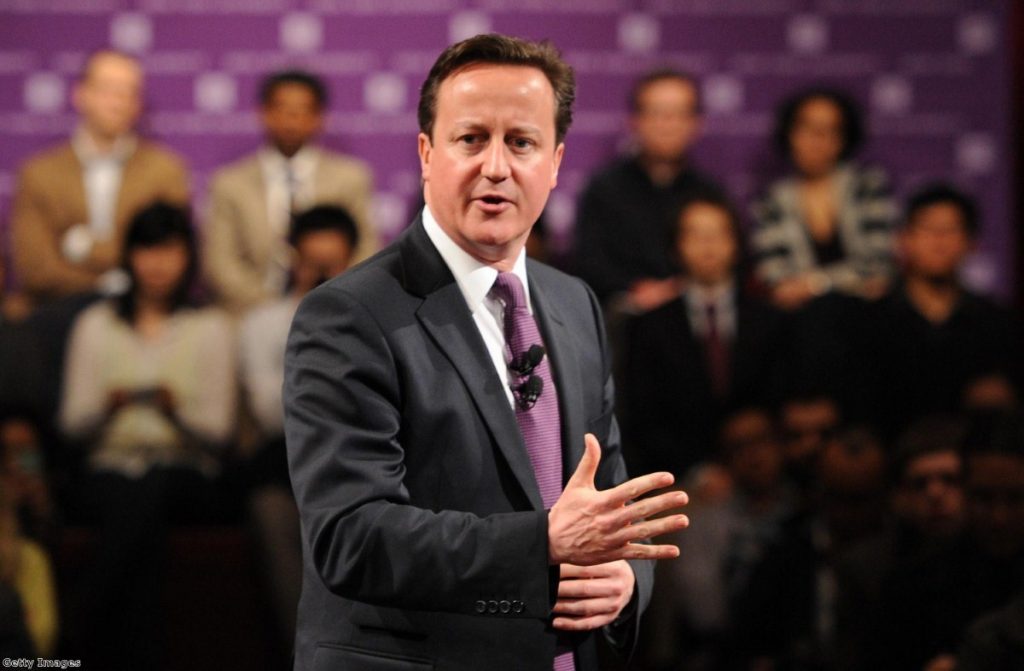Cameron makes HS2 his unity line
David Cameron made the case for HS2 today, in a move which suggests he is prepared to risk his authority on the project in order to secure support in the north.
In a speech to the CBI annual conference, the prime minister tried to move away from the HS2 tag and instead call it the "north-south railway" before attacking Labour's equivocation.
"Our infrastructure is decades out of date and we urgently need to invest and build," Cameron said.
"Those who want to delay or obstruct HS2 show a lack of vision. They are playing politics with Britain’s prosperity.


"They are betraying everyone north of Watford. And they want to condemn Britain to the slow lane.
"We can either tell our grandchildren we made big, long-term decisions to build a better country. Or we can tell them we dithered for decades while the world raced ahead.
"That kind of no-can-do spirit will get us nowhere. Fortune favours the bold – not the weak and indecisive. I ask everyone across politics to put their own interests aside – and put the national interest first."
The commitment Cameron shows in the speech shows he evidently believes he can wrestle back control of the debate and force Labour into backing the line, despite strong signs the opposition was planning a U-turn on the project.
Ed Balls publicly questioned the viability of HS2 during the Labour party conference and the party has since then been demanding the scheme comes in on budget or risks losing its support.
For Labour, scrapping HS2 offers a simple way to instantly fund a host of other policies, although it could dent its popularity in the north.
Cameron appears to be relying on that last element. His increasingly robust defence of the project also suggests he sees it as a way of drumming up Conservative support in the north – a part of the country increasingly out of the party's reach.
Boris Johnson came in to bat for the prime minister this morning with a Telegraph piece attacking Labour's position.
"Britain has the potential to be the biggest economy in Europe, both in population and output, in our lifetimes; but we simply will not be able to cope, or to give business the platform it needs, if we fail to invest in infrastructure," he wrote.
"We need a new supersewer under London, we need a new hub airport, and we need to increase our rail capacity.
"There was a time when people like Peter Mandelson and Tony Blair would have recognised this. It is deeply regrettable that the current Labour Party leadership should be so opportunistic and short-sighted as to pussyfoot around about HS2."
The tough approach from the government appears to have had some effect on Labour, with reports from Ed Miliband's office suggesting the party will still support the project if it stays within its current budget.
But Cameron has his own problems, not least with predominantly Conservative voters in the seats which will be affected by the high speed line. Ukip has made considerable political capital by opposing the project in these constituencies and local Tory MPs have been forced to vote against the party to stay in line with constituents' concerns.
Cameron's support also goes against the recommendations of his own government research, which suggested a development of existing lines would provide better value for money.









